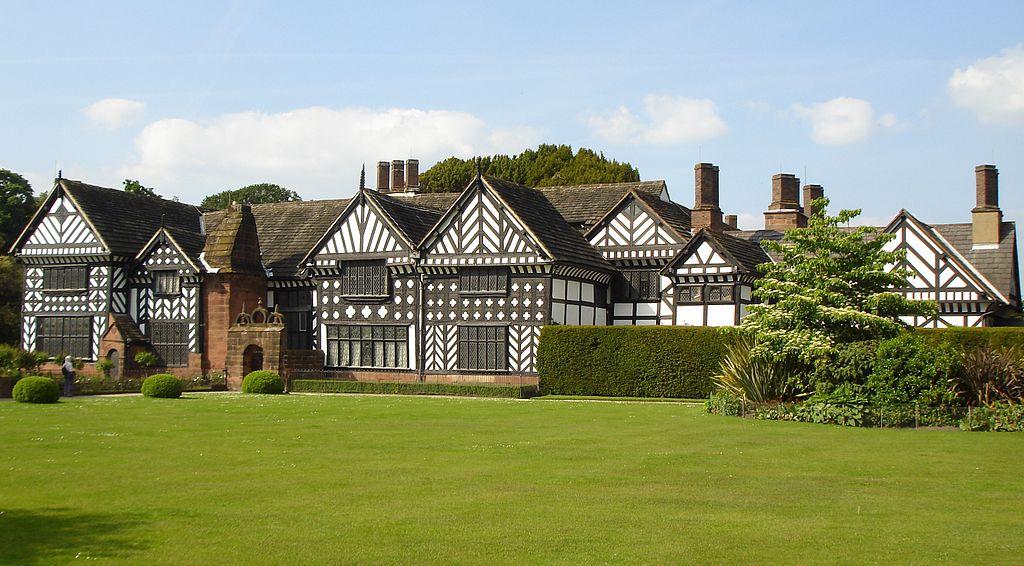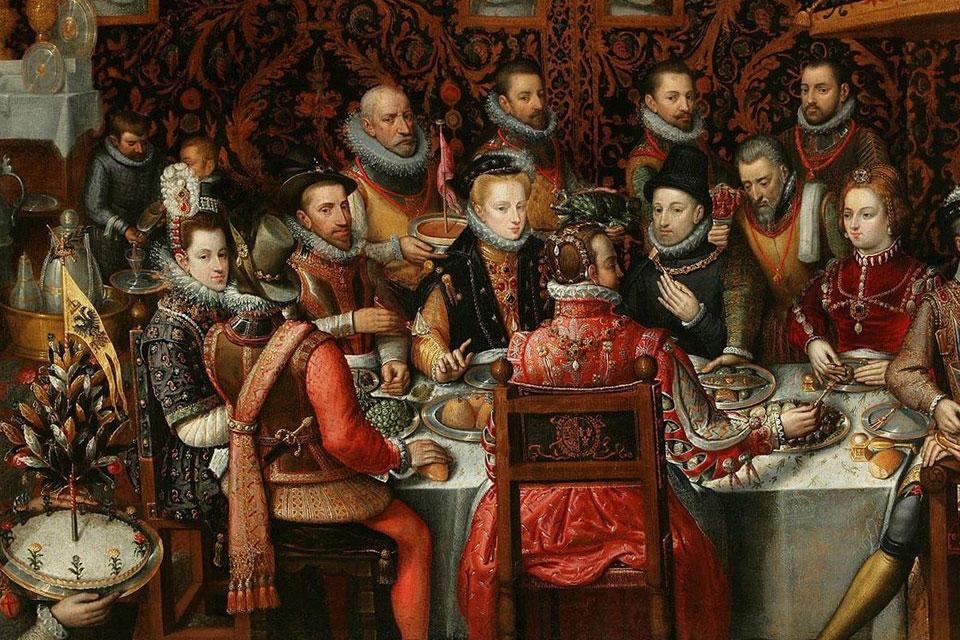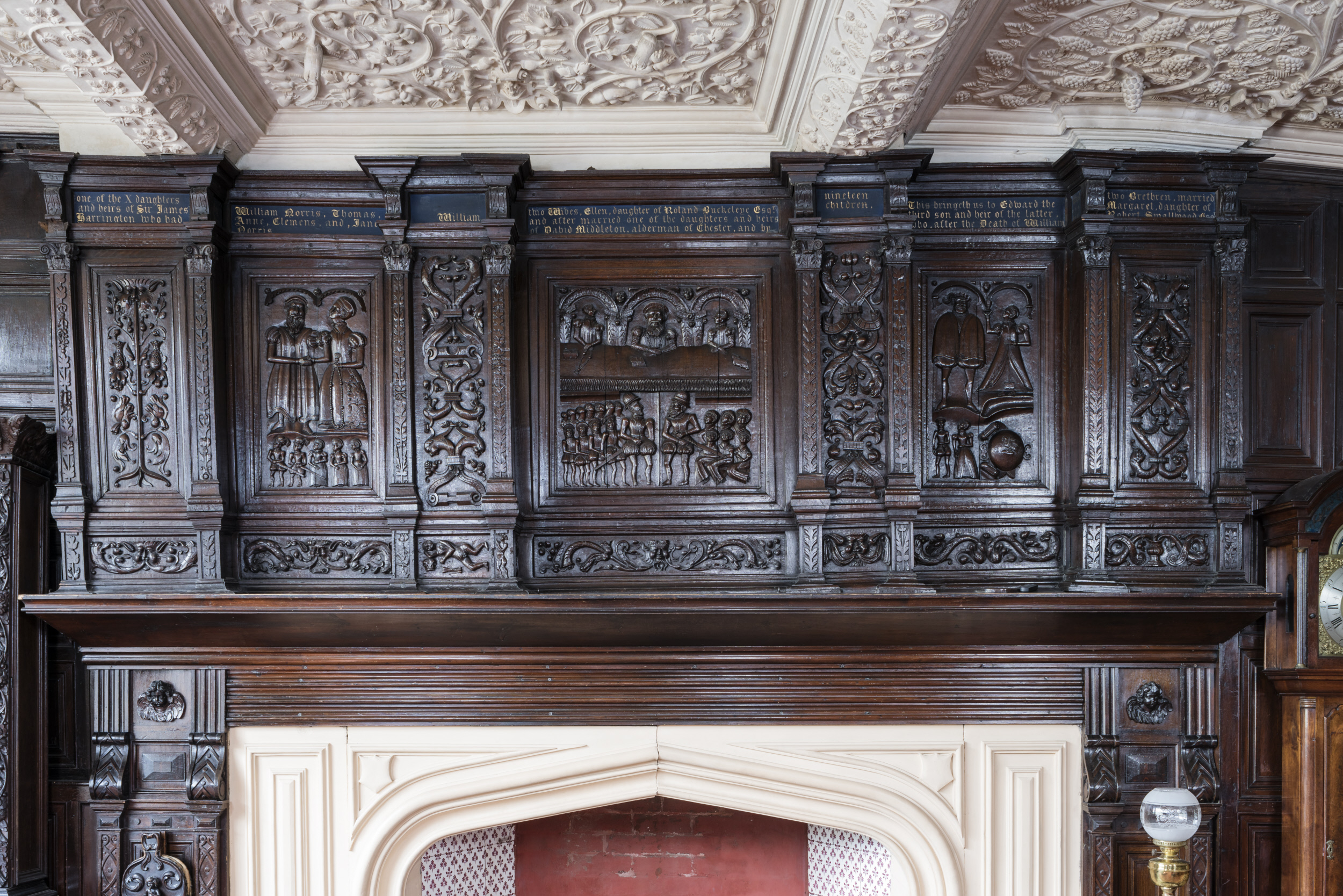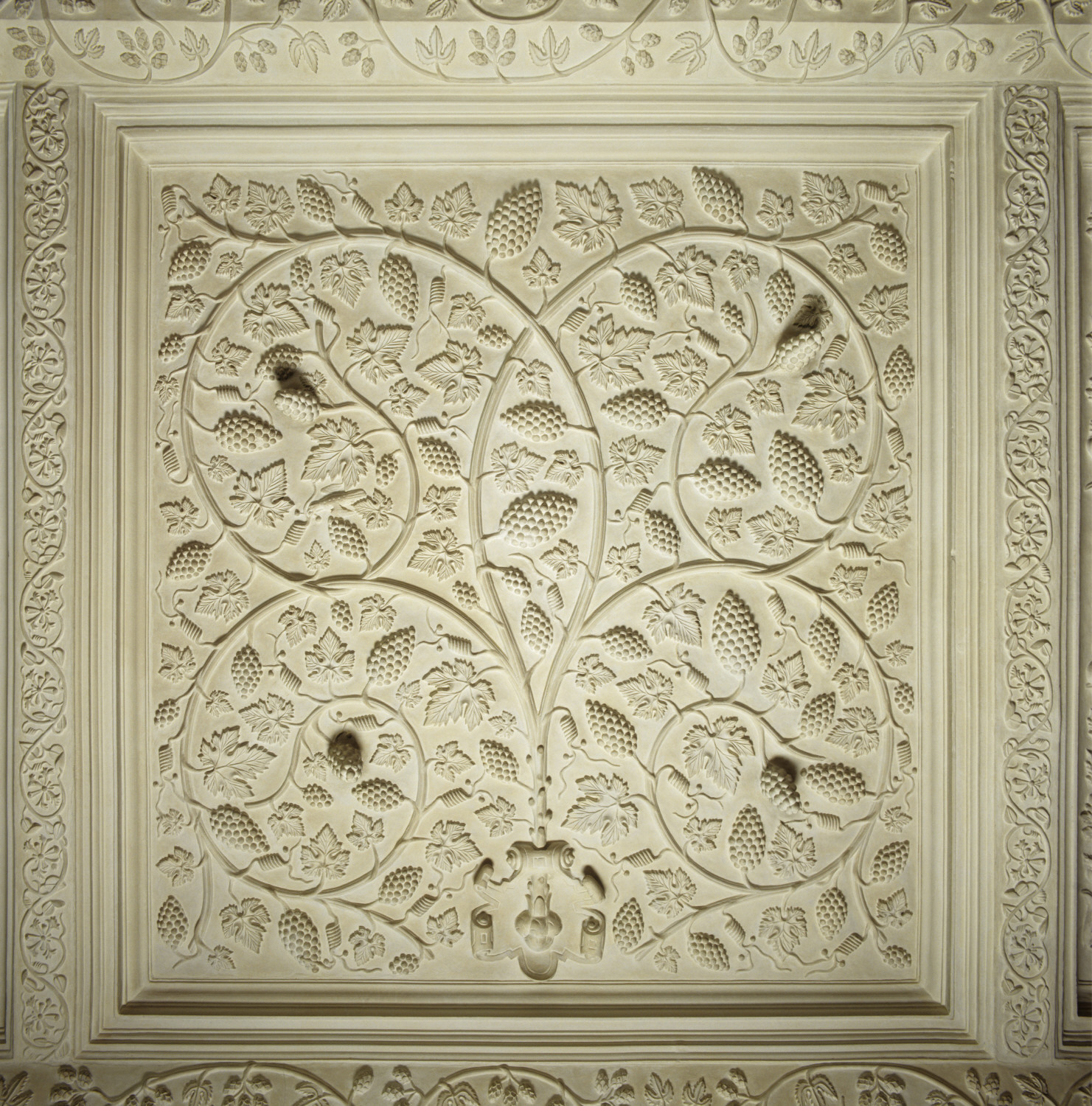
Tudor Dinner Parties and Political Friendships
It's well known it's best to avoid topics like religion and politics at a dinner party and it was no different back in the Tudor times, but perhaps for slightly different reasons. Anna Fielding from the National Trust looks at the ways in which Catholics navigated their social lives when being a Catholic could land you in prison or even worse hung.

What has food to do with the politics of the Reformation? As a Catholic, food and dinner parties enabled you keep your useful Protestant friends close. Around the table you could bond over areas of life other than faith: for example art, gardens, architecture, or hunting. Concessions could be made to stay safe, allowing Catholics to dine with Protestants without being seen to be forsaking the rules of the Catholic Church when it came to things like fasting, feasts, and observance of saints’ days. Catholics in the north-west used hospitality to avoid harsh prosecution, even wooing important figures like the Bishop of Chester when investigating religion in the region.

Part of the exhibition at The Walker Art Gallery aims to look at the Tudors beyond the Royal Court. How did power and politics work in the north-west of England in Tudor times, among the powerful families of the aristocracy and gentry, and how did this affect everyday life? Gentry families would gravitate towards aristocratic figures such as the Earls of Derby (the Stanley family) with homes at Liverpool Tower, Knowsley, New Park, and Lathom, or the Molyneux family of Sefton and Croxteth. Local Protestant (and some secretly Catholic) gentlemen would hold positions of power as the Sheriff of Lancashire, or as JPs (Justices of the Peace).
A gentry family’s ability to ride the waves of religious change in Tudor Lancashire during the Reformation was dependent on staying close to those with power and on how you maintained social friendship bonds. In my work I look at how Catholics, around Liverpool, used dinner parties to avoid prosecution and maintain their social status. This was an effective strategy to gain protection against a backdrop of religious suspicion and the threat of fines, imprisonment, and even death. With a family like the Norrises of Speke Hall we can try to understand a historical period through looking at a particular area of life, in this case food and dining.
Speke Hall was never raided by Protestant authorities despite the Norris family housing priests there, with many of the local Protestants being aware of their Catholic worship and practices. I argue that this was because they were adept at providing hospitality and influential dinner parties that minimised their identity as Catholics and instead focused on other identities they shared with their fellow gentry, across the religious divide. Several Protestant authority figures were reluctant to pursue their Catholic fellow-gentry friends, as they were just that, friends with whom social bonds trumped those of religion.
In such a highly Catholic area such as Lancashire, it would be fool hardy to come down too harshly on prominent Catholic families like the Norrises, as this would make you unpopular with other important gentry families in the county. Gaining a bad reputation as someone who went against members of your gentry social circle could be very damaging. Those who tried in the period soon backed down in the face of fierce condemnation.

In the Tudor period religion and politics were largely entwined and we can’t really talk about one without the other when discussing everyday politics in 16th century Lancashire. Yet families like the Norrises at Speke may have been able to separate the two. The family remained steadfast in their faith well into the 17th century, but their Catholicism did not mean that they were against the monarchy or the rule of Elizabeth I.
In the 17th century they became ardent Royalists and in 1624 had the royal arms of James I displayed in a carved woodwork piece in their dining parlour for all to see. It also seems, for political reasons, they were able to separate their faith from their need to retain their social status amongst the Lancashire gentry. They could dine and entertain Protestants and bond over different aspects of their identity if they needed to.
Yet, to do this, they often required reassuring Catholic elements around them, to ground them in their faith even as they appeared to transcend it to remain part of useful local political and social circles. On the face of it, faith might be brushed aside to get along. But faith was at the table, it was just hiding in plain sight. At Speke, various wood carvings, plaster ceilings, and even the placing of priest holes (literal holes in a house in which to hide persecuted catholic priests), allowed the Norrises to dine and bond with Protestants whilst still staying true to the Catholic religion. Decorative images could look like typical fashionable interior design to guests, whilst being seen and felt as secret motifs to the Norrises and other Catholics.
Priest holes were situated over key dining rooms, allowing one to dine in mixed company while knowing they were in close proximity to sacred spaces where priests hid. Subversive elements subtly indicating their faith might appear in the decoration of plates and dishes, with examples such as pomegranates, roses, lilies, and columbine flowers all having a double meaning as symbols of Catholic faithfulness and reminders of the Virgin Mary and Catholic religious meditation.

The Norris family accepted that they needed to stay part of the hospitality circuit of the Lancashire gentry. Though real political roles were harder to come by after the accession of Elizabeth I, it was still important that the Norrises maintained their social profile and kept Protestant gentry figures close if they were to avoid the worst of Elizabethan prosecutions. What do we convey to others when we invite people over for food and/or drinks? What we tend to avoid around the table – religion or politics – were key topics of conversation for the Tudors. What we are more likely to talk about now is the taste of dishes, where the recipe is from, techniques and ingredients. This was not suitable in Tudor dinner company, according to published etiquette guides, unless you were talking about the health qualities of dishes: this aspect you were almost expected to discuss and make sense of amongst your dinner guests. In this way, the dinner table was a real forum for debate and decision making on a whole host of subjects.
We can imagine the Tudor table and the choices people made about the food served, the messages dinner parties carried, of the pressure to perform socially, or of the political associations certain food stuffs had for different people. Perhaps we can also consider what is happening around our dinner tables today?
